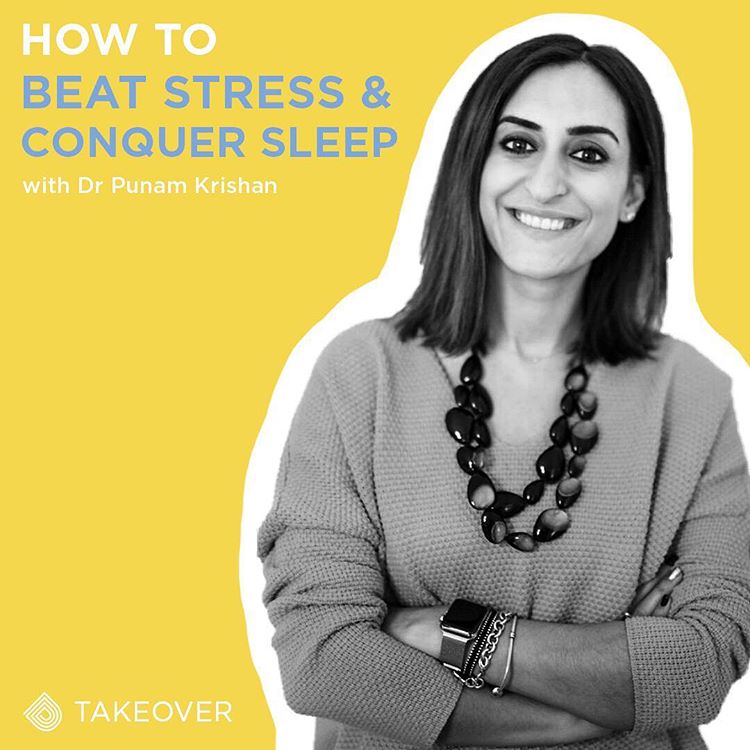- Home
- What we treat
- Mental Health
Coronavirus (COVID-19)
If you are worried about Coronavirus COVID-19 you can check your symptoms on NHS 111. If you need to speak to a doctor over video about any other symptoms you can book an appointment below.
Mental Health: An Overview
Everything you need to know about mental illnesses, including their diagnosis, treatment and more.
What is mental health?
The World Health Organisation (WHO) defines mental health as
"A state of wellbeing in which the individual realises his or her abilities, can cope with the normal stresses of life, work productively and fruitfully, and is able to make a contribution to his or her community".
They add that mental health is "an integral and essential component" of overall health, and so give mental health every bit as much weight as physical health.
Mental health is about more than mental disorders or disabilities. Mental health is, amongst other things, what enables us to effectively think, feel, or even interact with one another.
Poor mental health is, according to the WHO, often associated with:
- Sudden or rapid changes in circumstances
- Stressful or toxic work conditions
- Discrimination of any form
- Social exclusion
- Unhealthy lifestyles
- Physical illness
- Personality traits
- Genetic factors
What is mental illness?
Mental illness refers to a wide range of conditions that directly affect mental health. Mental illnesses can affect mood, behaviour, thinking and sometimes all three at once. Just like physical illness, mental illness can affect anyone of any age, sex or race.
Mental illnesses categorically cannot be overcome with willpower alone, to suggest that they can is to misunderstand the potency of some mental illnesses, and to discredit the individual struggle of the mental illness sufferer.
Is mental illness common?
A UK government survey from 2014 revealed the following:
- One in six adults meet the criteria for common mental disorders
- One in five women report common mental illness symptoms
- One in eight men report common mental illness symptoms
- Women are more likely than men to report severe symptoms of mental illness
- Since 2000, rates of mental illness in women have steadily increased, but remained stable in men
- Mental illness is most common in people living alone, with poor physical health or without stable employment
What forms of mental illness are there?
Some of the most frequently occurring mental illnesses in the UK today.
There are no results for your search. Check your spelling or use fewer words or characters.
Anger
A healthy emotion that becomes unhealthy when it gets out of control or harms those around you.
Find out moreAnxiety
A feeling of unease, worry or fear which, when persistent, can interfere with and disrupt daily life.
Find out moreDepression
Consistently sad, empty or irritable mood, affecting your ability to function with low energy or poor concentration.
Find out moreEating disorder
Becoming fixated with your weight or body shape to the point of eating too little, or too much.
Find out moreGrief
The whole range of emotions associated with the loss of someone or something important to us.
Find out moreInsomnia
Difficulty getting to sleep, staying asleep or waking early and being unable to get back to sleep.
Find out moreMood swings
Sudden, dramatic changes in mood with no obvious external causes or contributing factors.
Find out moreObsessive Compulsive Disorder (OCD)
Where unwanted, sometimes unpleasant thoughts lead to repetitive, seemingly necessary behaviours.
Find out morePanic
A sudden, unexpected sensation of fear or anxiety, sometimes with no clear trigger.
Find out morePhobias
A persistent, unshakeable fear of a specific object, activity or situation, at odds with the risk that it actually poses.
Find out moreSmoking
Not a mental illness, but still a habit or compulsion that may require mental health treatment techniques to tackle.
Find out moreStress
A response to external events that throws you off-balance and challenges or surpasses your ability to cope.
Find out moreSubstance abuse
The consistent and harmful use of any substance (e.g. drugs or alcohol) for mood-altering purposes.
Find out moreWhat are the common signs of mental illness?
According to the American Psychiatry Association, if any of the following symptoms are occurring and visible, you should speak to a doctor:
- Dramatic changes in sleeping or appetite
- Rapid, unpredictable changes in mood or depressed feelings
- Sudden urge to withdraw socially
- Loss of interest in or engagement with activities previously enjoyed
- Difficulty performing familiar tasks at school, work or home
- Raised sensitivity to sights, sounds, smells or touch
- Difficulty with concentration, memory or logical thought
- Loss of initiative or desire to participate in any activity
- Avoidance of overstimulating situations
- Feeling disconnected from yourself or your surroundings
- Strong illogical or unwarranted feelings or intuitions
- Fear or suspicion of others with little evidence
- Out of character or otherwise peculiar behaviour
Your mental health questions, answered

How do I get a mental health diagnosis?
One of the UK's leading mental health charities, Mind, note that there are three main areas that doctors investigate when it comes to potentially diagnosing mental illness:
- Your recent experiences and behaviours
- How long you've been experiencing your symptoms
- The impact your symptoms are having on your life
The NHS note that doctors' assessments may be more thorough still, covering the following:
- Physical health and wellbeing
- Financial circumstances and living arrangements
- Employment status
- Relationships with friends, family and co-workers
- Past experiences and family history of mental illness
- Issues relevant to your own safety, or the safety of others
- Whether anyone in your life depends on you
This might sound like a lot, but remember that you only have to talk about what you want to talk about, and reveal what you want to reveal. As with any health complaint, the more you can tell your doctor, the better. No matter what you do or don't reveal, the key is to be as frank and open as possible – in doing so, the doctor stands the best possible chance of providing you with a clear diagnosis.
How is mental illness treated?
The two most common forms of treatment for mental illness are talking therapies and psychiatric medication.
A lot of patients are already somewhat familiar with talking therapies, having seen them portrayed in films and TV. Be wary of these portrayals, as they often paint pictures of manipulative or overtly taxing sessions that would be deemed unethical by any care guidelines under the sun.
Cognitive behavioural therapy and person-centred therapy are two popular forms of talking therapy. The former is short-term, helping you to identify the connections you tend to make between thoughts, feelings and behaviours, then directing you to challenge the connections you naturally form. The latter is longer term, and entirely non-directive, placing patients with an empathetic, non-judgemental voice that accepts what the patient has to say without challenging or second guessing them – the theory being that the patient will naturally grow psychologically if given a healthy environment in which to do so.
Alternatively, there are four main categories of medication that can be used to treat mental illnesss – antidepressants, anti-anxiety medication, antipsychotic medication and mood-stabilising medications. The names of each are fairly self explanatory, easing symptoms of prevalent mental health conditions. The types of medication that you are offered will depend entirely on the severity of your symptoms, and the nature of your diagnosis.
How does exercise help mental health?
Exercise has a "huge potential to enhance our [mental] wellbeing", according to the Mental Health Foundation. They add that even 10 minutes of brisk walking can make us more alert and energetic, as well as improving our overall mood. Regular exercise can be more impactful still, boosting our self esteem and reducing both stress and anxiety. Perhaps most persuasive of all is their suggestion that exercise can prevent the development of mental health problems altogether, and improve the quality of life for those already experiencing mental illness.
As for how much exercise we should do to have an impact on our mental health, the Department of Health recommends that adults should be active daily, completing 2.5 hours of moderate intensity exercise each week – averaging out at 30 minutes, five times a week. Once you start, you will feel the benefits in no time at all.

 CQC regulated
CQC regulated
Push Doctor is regulated by the Care Quality Commission (CQC), the independent regulator of health and social care in England.
They are the foremost authority in our industry, assessing health providers' ability to provide people with safe, effective, compassionate and high-quality care – be they offline or online doctors.
Push Doctor is registered with the CQC under the name 'Square Health', with the registration number 1-3060117803.
Our most recent inspection took place in May 2019, concluding that the service we provide is safe, effective, caring, responsive and well-led – gaining a 'Good' rating overall. You can read the report in full on our CQC profile.
 Secure data
Secure data
Push Doctor uses the latest technologies to ensure utmost security. We utilise several layers of firewall security and encrypt all personal data to ensure it’s safe.
All users are required to go through a two-step verification process to create and restore an account. Online access to an account is protected with a password that a user creates and PD apps support touch ID technology.
When using the platform, all personal data is transmitted through the internet using secure socket Layers (SSL) technology. SSL technology causes a browser to encrypt entered information before transmitting it to our secure server. SSL technology, an industry standard, is designed to prevent a third party from capturing and viewing Personal Data.
 Authorised medicines seller
Authorised medicines seller
Push Doctor is registered with the Medicines & Healthcare products Regulatory Agency (MHRA), and fully approved to sell medicines from our website.
We have been approved sellers since our inception, with the company number of C46132. As authorised MHRA sellers, we are approved to sell the following as and when we need to do so:
- Prescription only medicines
- General sales list medicines
- Pharmacy medicines
We regularly review the medications that we prescribe on our service, making sure to meet best practice and only ever provide outstanding care. With this, and our CQC rating, you know you are in safe hands.
 GMC-registered GPs
GMC-registered GPs
All of our doctors are NHS-trained and registered with the General Medical Council (GMC), ensuring that you are only ever receiving the best possible care and advice.
We encourage you to familiarise yourself with our online doctors, check their GMC profiles for yourself – every doctor on our platform has one, which you can easily search the GMC's database for.
In the majority of cases, we even give a direct link to our doctors' LinkedIn pages so you can see where they have worked in the past and where they were educated.
You can also see who our medical support and data protection teams are as well.
We welcome scrutiny, and encourage you to get in touch if you have any questions, concerns or comments about the people that power Push Doctor.
